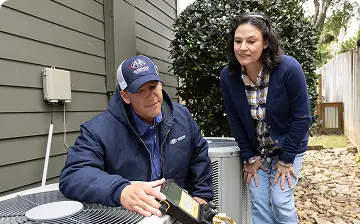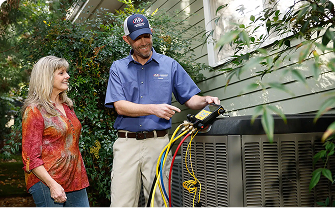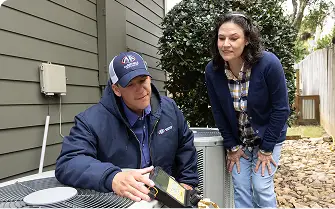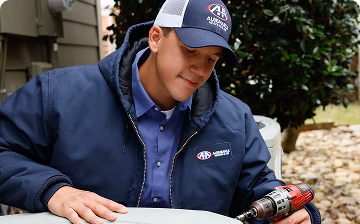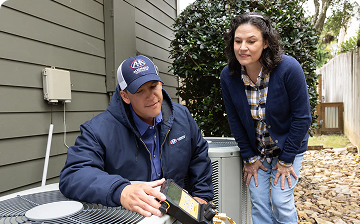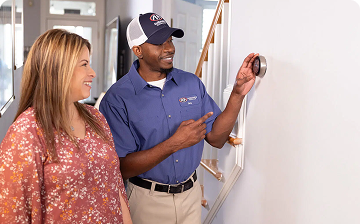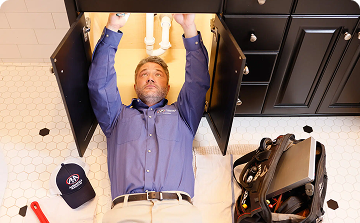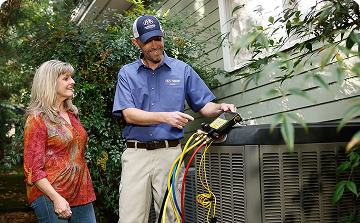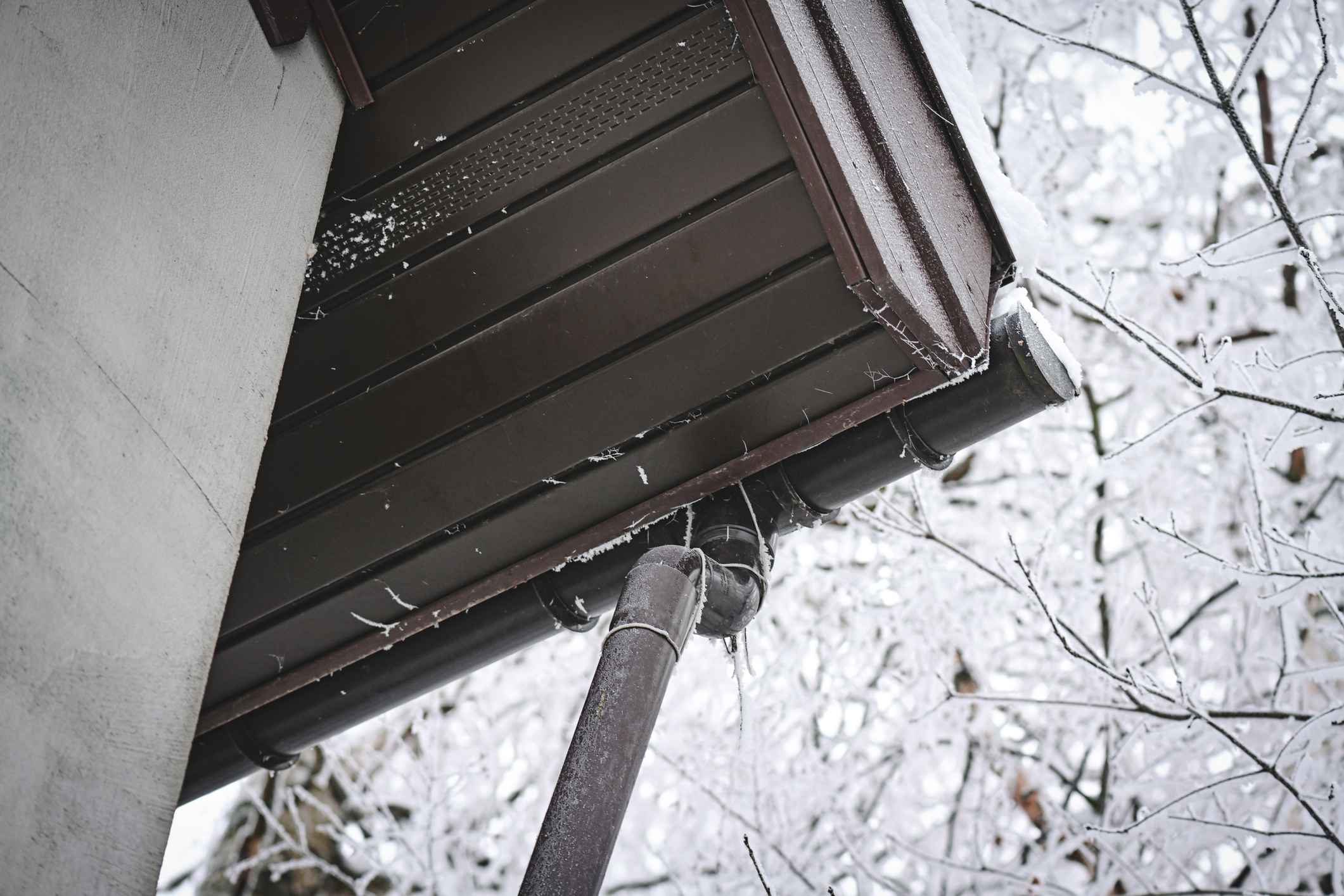
Why Does My Circuit Breaker Keep Tripping?
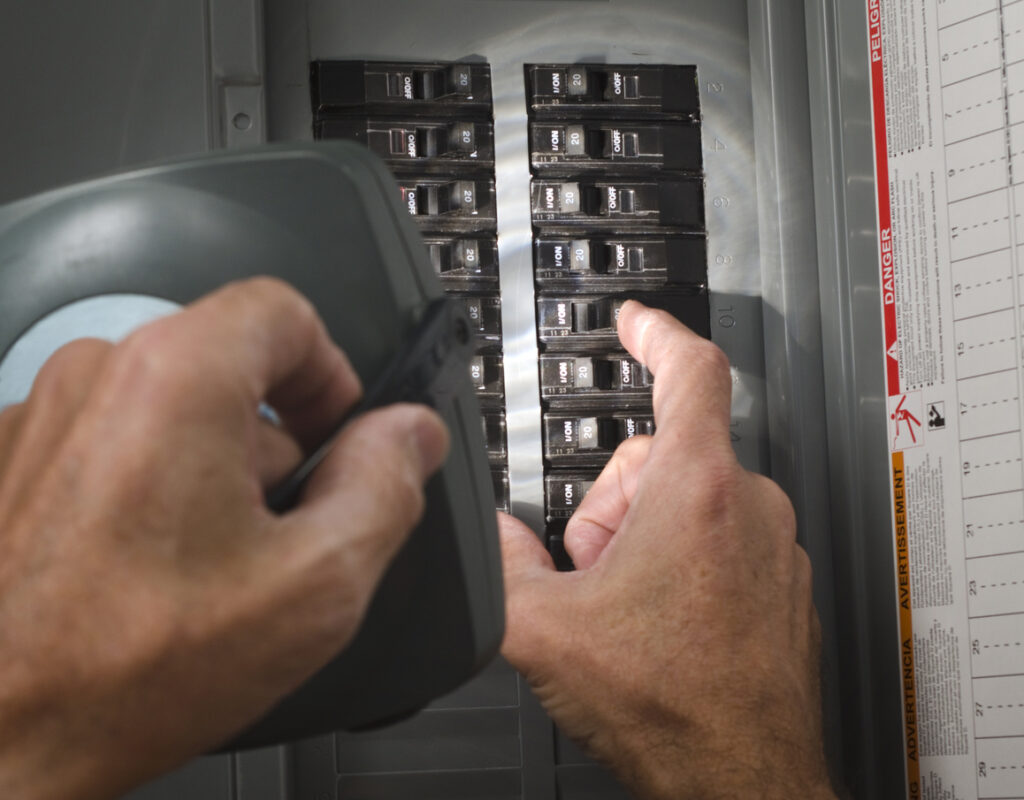
If you find yourself heading to your electrical panel frequently to reset a tripped AC circuit breaker, it can be more than a major annoyance. An air conditioner that continues to overheat or draw excess energy can be a sign that you have a larger problem with your system.
In this article, the HVAC experts at Albemarle Heating, Air & Plumbing discuss the most common causes of tripped AC breakers and the steps to troubleshoot these issues and restore your system quickly.
What to Do When Your Circuit Breaker Trips
Your home’s circuit breakers are inside your electrical panel. You’ll know which breaker is tripped by looking for a switch between the “ON” and “OFF” positions.
If you see this, flip the breaker fully into the “OFF” position before turning it back on to reset the breaker.
Common Causes of AC Circuit Breaker Trips
The most common causes of AC circuit breaker trips include:
- Compressor failure: A failing compressor can cause your system to overheat, which will trip the breaker.
- Dirty filters: Any restricted airflow to your system can result in your system having to work harder to cool your home.
- Fan problems: Issues with your blower or condenser fan can cause your system to draw excess amperage.
- Dirty condenser coils: Lack of maintenance of your condenser coils can cause your system to overheat.
- Bad circuit breakers: A worn breaker could be the root of AC circuit breaker issues.
How to Troubleshoot Tripped Circuit Breakers
Homeowners can attempt to troubleshoot circuit breaker issues caused by their AC by first determining the issue and then either calling for professional service or completing tasks themselves.
Check Your Compressor
The compressor in your AC pumps refrigerant through the system. When it fails, it draws too much current, overloading the circuit and tripping the breaker. Homeowners can listen for clicking or humming when turning on the system as a sign that this may be the issue. If you believe this is the root of your issue, call a professional for AC repair or replacement.
Replace Filters
Clogged or dirty air filters restrict airflow to your system, which can cause it to overheat. When it does, the increased electrical demand can trip the breaker.
Remove and inspect your filter to determine if dust and dirt are causing your blower and other components to work harder than necessary. Then, set a reminder to replace these filters every one to three months.
Listen for Fan Problems
Another way your AC may overload the circuit and trip the breaker is if your blower or condenser fan motor has issues. Jammed or failing motors and bad capacitors can draw more amps than normal when your AC is running.
Signs that this may be your issue include buzzing or rattling sounds. If you experience this, call a technician for a professional inspection and repair.
Clean Condenser Coils
Reduced efficiency from dirty coils can cause your AC to work harder, putting extra strain on the compressor and causing the system to overheat.
Inspect the outdoor coils for leaves, dirt, or grime. Then, turn off the system’s power and gently hose off the coils with water.
Replace the Circuit Breaker
The problem with your AC may not be your AC at all. If your system is connected to a bad breaker, it could cause frequent tripping.
Breakers will wear out over time and may need to be replaced, especially if you see signs of wear or burning. Contact an electrician for circuit breaker replacement.
Schedule AC Repair with Albemarle Heating, Air & Plumbing
When you need reliable AC repair in the Charlottesville area, contact the team at Albemarle Heating, Air & Plumbing.
Our fully licensed and insured NATE-certified technicians can handle a wide range of AC issues with upfront pricing and our peace of mind guarantee.
Plus, we offer service for all brands and promotions to help you save on your next service.
Call Albemarle Heating, Air & Plumbing today to schedule AC repairs for your home.
Recent Posts
CHARLOTTESVILLE AND SURROUNDING AREAS Albemarle County | Fluvanna County | Louisa County | Nelson County | Augusta County | Madison County | Greene County | Orange County


